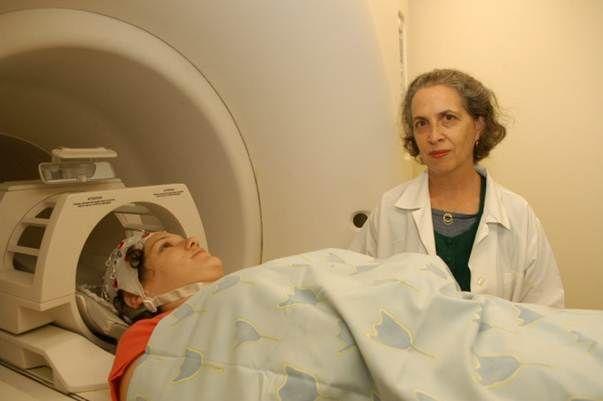Findings are relevant to an understanding of the neural mechanisms present in mental disorders such as post-traumatic stress disorder and addiction

Credit: American Friends of Tel Aviv University (AFTAU)
A new Tel Aviv University study examined the brain’s reactions in conditions of uncertainty and stressful conflict in an environment of risks and opportunities. The researchers identified the areas of the brain responsible for the delicate balance between desiring gain and avoiding loss along the way.
The study was led by TAU researchers Prof. Talma Hendler, Prof. Itzhak Fried, Dr. Tomer Gazit, and Dr. Tal Gonen from the Sackler Faculty of Medicine, the School of Psychological Sciences, and the Sagol School of Neuroscience, along with researchers from the Tel Aviv Sourasky Medical Center (Ichilov) and the University of California, Los Angeles School of Medicine. The study was published on June 24, 2020, in the journal Nature Communications.
Prof. Hendler explains that in order to detect reactions in the depths of the brain, the study was performed among a unique population of epilepsy patients who had electrodes inserted into their brains for testing prior to surgery to remove the area of the brain causing epileptic seizures. Patients were asked to play a computer game that included risks and opportunities, and the electrodes allowed the researchers to record, with a high level of accuracy, neural activity in different areas of the brain associated with decision-making, emotion, and memory.
Throughout the game, the researchers recorded the electrical activity in the subjects’ nerve cells immediately after they won or lost money. The subjects were asked to try to collect coins while taking the risk of losing money from their pool. It was found that the neurons in the area of the inner prefrontal cortex responded much more to loss (punishment) than to the gaining (reward) of coins.
Moreover, the researchers found that the avoidance of risk-taking in the players’ next move was affected mainly by post-loss activity in the area of the hippocampus, which is associated with learning and memory, but also with anxiety. This finding demonstrates the close relationship between memory processes and decision-making when risk is present (stressful situations). That is, the loss is encoded in the hippocampus (the region of the brain associated with memory), and the participant operating in a high-risk stressful situation preferred to be cautious and avoid winning the coins (forfeiting the gain).
The experience of winning, however, was not encoded in the memory in a way that influenced the choice of future behavior in conditions of uncertainty. An interesting point is that this phenomenon was found only when the subject was influencing the result of the game, and only in the presence of a high risk in the next move, which indicates a possible connection to anxiety.
“Throughout life, we learn to balance the fear of risking loss with the pursuit of profit, and we learn what is a reasonable risk to take in relation to the gain based on previous experiences,” Prof. Hendler says. “The balance between these two tendencies is a personality trait but is also affected by stress, like the current pandemic. A disorder in this trait increases sensitivity to stress and can cause non-adaptive behavior such as a high propensity for risk-taking or excessive avoidance.
“Our research shows for the first time how the human brain is affected by the experience of failure or loss when it is our responsibility, and how this inclination produces avoidance behavior under particularly stressful uncertainty,” Prof. Hendler concludes. “An understanding of the neural mechanism involved may guide future neuropsychiatric therapies for disorders featuring excessive avoidance, such as depression, anxiety, and PTSD, or disorders associated with excessive risk-taking, such as addiction and mania.”
###
Media Contact
George Hunka
[email protected]
Original Source
https:/
Related Journal Article
http://dx.




